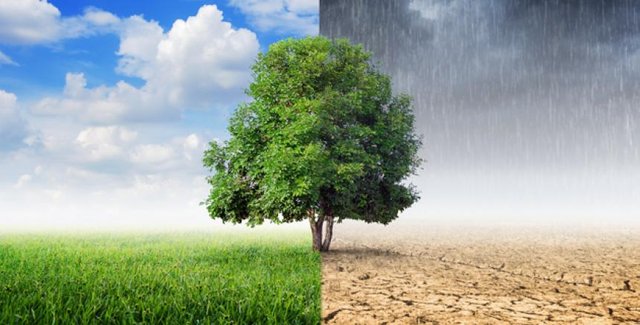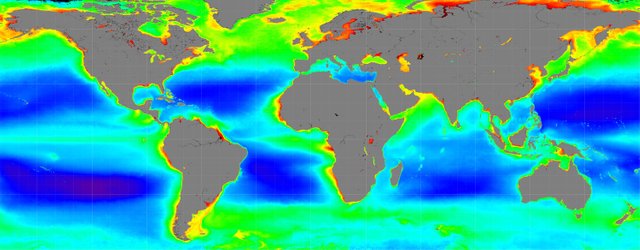Why You Should Be Interested In Climate Studies
Whether or not you believe in climate change (and the scientific consensus is clear in this respect with 97 percent of experts agreeing that the climate-warming is real), there’s no denying that we’ve seen some extreme weather events lately. From the devastating wildfires that raged across northern California in October to the catastrophic rain and flooding wrought by Hurricane Harvey in Texas, climate conditions can and do have a momentous impact on human life on this planet.

Uniquely positioned to help navigate the uncertainties of climate toward safer and healthier people? Climatologists. Here’s a closer look at this increasingly important field, along with three reasons to consider pursuing climate studies.
What is Climatology?
In order to understand climatology, we must first understand climate. Explains Exploring Earth, “Climate is defined as an area's long-term weather patterns. The simplest way to describe climate is to look at average temperature and precipitation over time. Other useful elements for describing climate include the type and the timing of precipitation, amount of sunshine, average wind speeds and directions, number of days above freezing, weather extremes, and local geography.”

from nasa
Wondering about the difference between weather and climate, meanwhile? Bright Knowledge says, “Climatology is not the same thing as meteorology, which is the study of short-term weather systems used to put together weather forecasts. Climatologists look at long-term, large-scale weather systems. Global warming is a good example of the difference: there are still cold winters, and some parts of the world might get colder, but the average temperature for the whole world is going up over entire years.”
An even more direct way to put it, according to the University of Nebraska’s Drought Mitigation Center? ““Climate is what you expect. Weather is what you get.”
Furthermore, there are many different types of climatology. Continues Bright Knowledge, “Climatology can be divided into the past, the present and the future. Paleoclimatologists try to work out what the Earth's climate was like in the past, by examining evidence from tree rings, ice cores or rock layers. Other climatologists study the climates of today, examining how weather across the world varies and interacts. Finally, climatologists can use statistics and mathematical techniques to model the climate and predict how it will change in the future.”
Three Reasons to Pursue Climate Studies
While meteorological studies may sound flashier (storm chasers, anyone?), climate studies are both exciting and deeply meaningful.
1. Your research can have life-saving global impact.
Wired.com included the impact of climate change on food crops as one of its “10 Hottest Fields of Science Research.” The rationale? “Climate change is happening, and while current disruptions may mostly involve higher air conditioning bills, the very basis of the planet’s food supply may ultimately be at risk. Plant scientists are hard at work developing drought-resistant crop strains and determining how biomes will shift.”
But the consequences of global warming aren’t limited to food supply. Says US News & World Report, “Experts also advocate developing adaptation measures to deal with more extreme weather conditions including rising sea levels, stronger storms, greater risk of wildfires, and longer dry spells.” Forecast to play a vital role in navigating these changes? Climatologists.
2. The job market is strong.
While climate change has plenty of downsides, there’s one upside -- at least for those hoping to get a job. Climatologist and professor Brent Yarnal told the College Foundation of West Virginia, "There's a very limited pool of people going into graduate school to specialize in climatology. We have more research assistantships and post-doctoral research fellowships than we have applicants to fill them, especially from here in North America."
Echoed climate-modeling expert Andrew Weaver, “Every student I’ve ever had has gotten a position. Not only that, but they can be selective as to where they want to go.”
And the opportunities aren’t limited to academia. Organizations ranging from nonprofits to utilities companies to private businesses are hiring climatologists to help with policy development.
3. Opportunities for cooperation abound.
While climatologists are often heralded for their math and science skills, cooperation is also a hallmark of work in this field.
Says the American Institute of Physics of a climate change-driven shift toward interdisciplinarity collaboration, “For studying a system with features dispersed among many specialties, the solution was collaboration. This trend was strong in all the sciences, as research problems spanned ever more complexities. Scientists with different types of expertise exchanged ideas and data, or worked directly together for months if not years. Universities and other institutions, braced by ample funding, increasingly encouraged coalitions of research groups in a variety of fields. Specialists in the ionosphere, the Earth's interior, ocean currents, even biology, found themselves sharing the same funding agencies, institutions, and perhaps buildings….An especially powerful mechanism for cooperation was the formation of projects to address particular interdisciplinary topics. For example, specialists in computer modeling got together with paleontologists to test whether the models were robust enough to simulate a climate different from the present one.”
Global cooperation, too, is alive and well. Need proof that we’re all in this together? Look no further than Emmanuel Macron’s invitation to U.S. scientists to partner with France on climate change in response to Trump’s rejection of the Paris climate accord.
Urges the American Geophysical Union, “Human‐induced climate change requires urgent action. Humanity is the major influence on the global climate change observed over the past 50 years. Rapid societal responses can significantly lessen negative outcomes.” And just as humanity is part of the problem, so will it be part of the solution -- with climate scientists positioned on the frontlines of the fight. Will you be among them?

Nice photo,can Upvote my photo please !